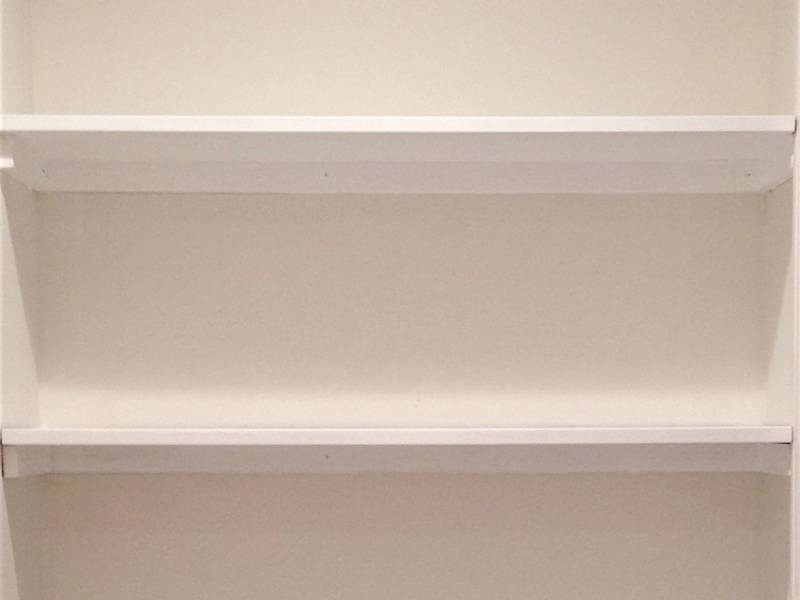Marie Kondo’s books and Netflix series have inspired people everywhere to empty out drawers, clean out cabinets, and get rid of anything that doesn’t “spark joy”. Her work highlights the benefits of clearing the clutter from your life, something professional organizers around the world have been helping families do for decades.
However, it’s important to know that physical clutter is only one piece of the simplifying puzzle. Getting rid of the piles of paper, the clothes that don’t fit, and your now-teenagers’ childhood toys littered in your home is a significant first step in the journey to eliminating stress and unwanted things. Clearing your mental clutter is another powerful step in the process of truly simplifying your life.
What is mental clutter?
I define mental clutter as the thoughts that take up space in your mind, creating confusion, stress, and exhaustion. Mental clutter keeps you from thinking straight, making decisions and living intentionally. With intention, focus, and patience, you can clear it from your life just as easily as tossing those holey socks and worn towels.
Here are six ways to clear mental clutter:
Spend time in nature (without your phone).

When’s the last time you went somewhere without your phone? Do you even remember?
We’ve become so used to always having a phone that it feels unnatural to leave home without it. But being unplugged can help you settle into a few minutes or a few hours of much-needed downtime. Immerse yourself in nature and let your mind wander. Approach this time away with curiosity and engage your senses to notice the sights, sounds and smells around you. This experience is an opportunity to clear your mind and set your thoughts aside.
Do a brain dump
How often do you think about all the things you have to do? Maybe you have sticky notes, notes on your phone, or voicemails and emails spread out, all over reminding you of the many tasks you need to complete. A brain dump will help fix this.
Choose a central location, either a notepad or a digital app, to serve as your main brain dump location. Write an exhaustive list of everything you can think of that requires your attention. Just getting these thoughts out of your mind enables you to see them as a whole, sort them, and act on them. Knowing your responsibilities and having a plan to tackle them takes the swirling thoughts out of your mind, eliminating your stress.
Finish or let go of an unfinished project.
Do you have any unfinished projects in your life? I’m guessing your answer is “yes” based on what I’ve seen in my experience working with families to simplify their homes and lives. Whether it’s a broken ornament you’re planning to superglue back together, a scarf you had the best of intentions to knit, or the storage rack you bought on sale last year and planned to put up in the garage, unfinished projects abound in our homes and lives.
While these unfinished projects don’t seem to affect us on a day-to-day basis, they can drain our energy and contribute to our mental clutter more than we realize. What do you think about each day when you pull into the garage and walk around the storage rack box sitting on the floor? What happens when you see the yarn basket next to the couch each night? Being aware of these unfinished projects is a significant step in clearing this clutter.
With your brain dump, you’ll have a clear list of the unfinished projects in your life. Once you know what your unfinished projects are, you can decide what to do about them. Your options are simple: Finish the project, or let it go. If you’re planning to finish it, schedule the time, set a deadline, and purchase any needed supplies. Break it down into chunks or ask for help if needed.
For example, if “organize my pictures” has been on your list for years, ask family members to share the responsibilities and costs with you, set goals for each month, and schedule the time in your calendar. Make the project fun by planning family gatherings to work on it or listen to music as you sort and scan. Stay focused on your end goal, such as seeing all of your photos organized and digitized on your Nixplay frame and think about how great it will be to finally finish the project. Of course, if you have unfinished projects that no longer sound exciting or necessary, return products and supplies that you can, then donate the rest to an organization that would be happy to have them.
Focus on one thing at a time.
Do you ever feel like your mind is a computer browser with 22 tabs open, all needing your attention? Just like your computer can’t function well with too many programs running at the same time, neither can you. Research continues to show that multitasking isn’t effective.
Learn to start focusing on and fully finishing just one project at a time. Use your brain dump to prioritize what you need to work on and schedule time in your calendar to complete the steps. Choose to delegate tasks that others can do and delete things that really don’t need to be done after all. Be mindful when you find yourself inching back toward multitasking. Use this as a signal to shift gears and do another brain dump.
Clear a shelf, counter, or surface.

Just as your unfinished projects subtly steal your attention and drain your energy, so can cluttered shelves and surfaces in your home. Experiment with this by clearing one shelf in your home. Choose one that you see every day and clear everything from it. See if you can keep it this way for one week (or longer). Creating this white space gives your eyes and mind a chance to rest. See what you notice over time. As you learn to embrace this space, continue clearing areas around your home and clearing your mental clutter.
You don’t have to be super busy all the time. Using these tips, you can clear the mental clutter from your life and spend more time enjoying the space you create!

